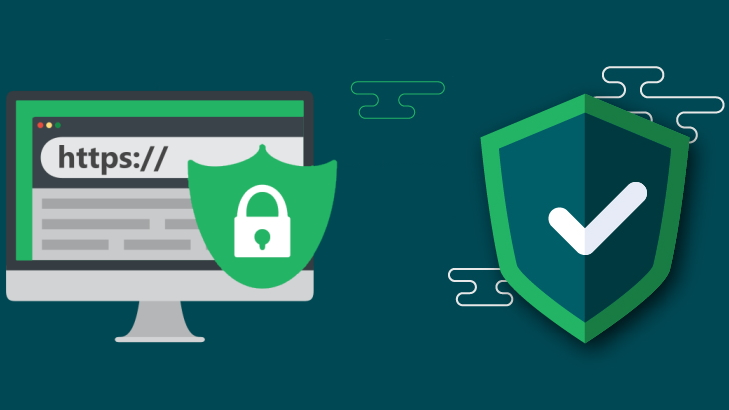
Image From : tuthost.ua
Have you ever noticed that small padlock icon next to a website’s address in your browser? That’s the sign that the site is using an SSL Certificate. It may seem insignificant, but this little feature has a huge impact on your security, customer trust, and even your website’s position in search engines like Google.
For any business owner or blogger, understanding the importance of SSL is no longer an option—it’s a necessity. This article will explain why an SSL Certificate is so crucial and how it can be the best investment for your online success.
What Exactly Is an SSL Certificate?
SSL (Secure Sockets Layer) is a standard security technology that creates an encrypted connection between a web server (your hosting) and a user’s browser. In simple terms, it’s a protective layer that ensures all data transmitted between the two remains private.
Without SSL, data like login information, credit card details, or personal data is sent in plain text. This means anyone with malicious intent could easily intercept and steal that data. With SSL, the data is scrambled, making it unreadable to anyone else.
Why SSL Is Vital for Security
Security is the primary reason SSL Certificates were created. They protect both you and your users from various cyber threats:
- Data Theft Prevention: SSL encrypts sensitive data, such as credit card numbers, passwords, and other personal information, during transmission. This prevents hackers from stealing data during online transactions or when a user fills out a form.
- Identity Verification: An SSL Certificate doesn’t just encrypt data; it also verifies the identity of the website owner. This ensures that users are truly connecting to the site they intended to, not a fake phishing site created to steal their information.
The Role of SSL in SEO and Trust
Beyond security, SSL has a significant impact on your business, particularly in SEO (Search Engine Optimization) and customer trust.
- Google’s Ranking Factor: Since 2014, Google has officially announced that SSL (i.e., HTTPS) is a ranking factor. Websites with SSL have a slight advantage in search rankings over those without. This is a clear signal from Google that they prioritize secure sites.
- User Trust: The padlock icon and a URL starting with “https://” provide a strong visual signal to visitors that your site is secure. Studies show that users are more likely to make a purchase, fill out a form, or interact with a site they perceive as safe. Without SSL, browsers display a “Not Secure” warning, which can cause visitors to leave immediately.
- Industry Compliance: For e-commerce businesses, using SSL is not just a recommendation but is often a mandatory requirement to process payments and comply with payment card data security standards (PCI DSS).
How to Get an SSL Certificate
Today, getting an SSL Certificate is incredibly easy. Many leading web hosting providers like Hostinger, SiteGround, and Bluehost include a free SSL with every hosting plan. This is known as Let’s Encrypt, which automatically renews every few months.
If your hosting provider doesn’t offer it for free, you can purchase one from various SSL certificate providers. However, choosing a host that provides it built-in is far more practical and cost-effective.
Conclusion: Don’t Compromise on Security
An SSL Certificate is a small investment with a massive impact. It not only protects your data and your customers’ data but also boosts your SEO rankings and builds vital trust for your business’s growth.
If your website isn’t using an SSL yet, now is the perfect time to install one. Make sure you choose a hosting provider that cares about your security and reputation. Don’t let your website be an easy target—secure it, optimize it, and achieve your online success!




